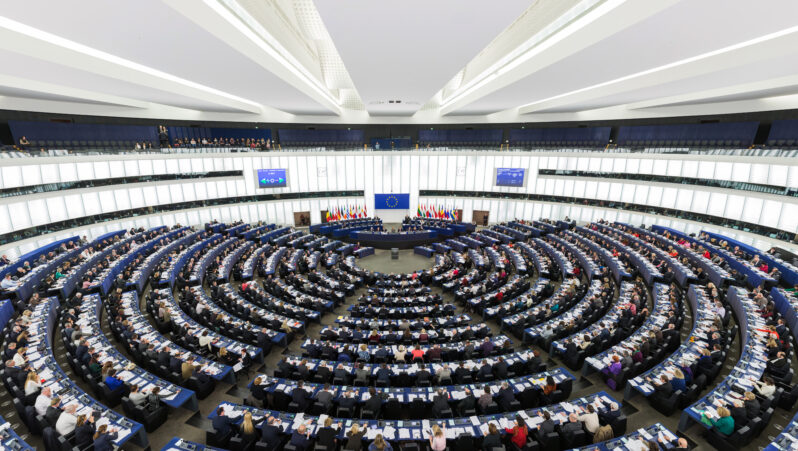Last week the European Parliament paved the way for the commercialisation of human embryos and foetuses when, by an overwhelming majority, it passed a regulation of “Substance of Human Origin” intended for human use. This text has far-reaching implications as it regards not only blood, tissues or cells but also embryos and foetuses. Moreover, the regulation imposes genetic selection and the destruction of embryos with genetic anomalies, such as Down Syndrome.
The Catholic Bishops in the EU and also the European Federation of Catholics Families have expressed serious ethical concerns about this proposal.
All in all, the proposal, which now goes before the European Council and
the European Commission, is a terrible piece of work that thoroughly
disrespects human life at its earliest stages. The regulation was better before it reached the amendment stage.
While the purpose of the
“Substance of Human Origin” (SoHO) regulation is to set standards for new forms
of processing and use of human organic material, as we can see, it makes no
proper distinction between human blood, cells and tissue on the one hand, and
human beings themselves on the other, in this case embryos and foetuses, , as
well as non-viable prenatal life. They are all regarded as products for
scientific and medical use with an embryo put on the same moral plane as a
blood cell.
If the proposal becomes law, it
will allow human embryos created in laboratories specifically for research
purposes, or ‘spare’ embryos left over by the IVF process, to be used for
commercial scientific research. In other words, they will be for sale. It might
even include naturally conceived unborn children.
This broad categorisation
reduces unborn human life to the status of a mere substance, equivalent to
saliva, skin cells or blood plasma, which disregards its inherent dignity.
The Catholic bishops’ office in Brussels (COMECE) has expressed concern that the regulation equation could extend to other areas of law,
undermining the protection of unborn life in the EU Member States, which is
already weak in most cases.
The EU Parliament vote also
raised allegations of promoting genetic selection and eugenics.
The SoHO regulation
establishes that clinics should “achieve a high level of assurance that genetic
conditions are not transmitted to recipients or offspring from medical assisted
reproduction” (art. 58) The Bishops’ document questioned how this would be
possible without testing embryos or foetuses for such conditions for the
purpose of selection. This means that embryos with some genetic anomalies,
including Down Syndrome, for instance, have to be destroyed. Genetic selection
is a violation of human dignity.
“Does the European Parliament want to promote eugenics?”, asked Vincenzo Bassi, the president of the European Federation of Catholic Family Associations.
The COMECE document highlights the indivisibility of human life,
emphasising that an embryo is a human being continually developing without
qualitative breaks. “Already with the fusion of the nucleus, an individual
human being with own unique DNA comes into being”, it says.
The draft regulation reduces fertilised
human eggs and embryos to “mere raw materials without human quality”,
potentially compromising their consideration in ethical and legal assessments.
The value and dignity of human
life remains unchanged, regardless of whether it is created within a
laboratory, through medical intervention or naturally. Human life has inherent
value and needs protection, especially in contexts involving research and
pharmaceutical production.
The COMECE document emphasises
the need to respect the ethical decisions of EU Member States regarding the use
or restriction of certain types of ‘substances of human origin’. Additionally,
it advocates for Member States’ rights to refuse recognition of authorisations
granted by other Member States when they conflict with national regulations.
The regulation approved by the
EU Parliament is not final yet, but it will represent the position of the
European Parliament in the upcoming negotiations with the EU Commission and the
EU Council. To address the aforementioned concerns, the negotiations should
produce a new text that will scratch unborn human life from the definition of
“substance of human origin” and respect its dignity.

Nessun commento:
Posta un commento